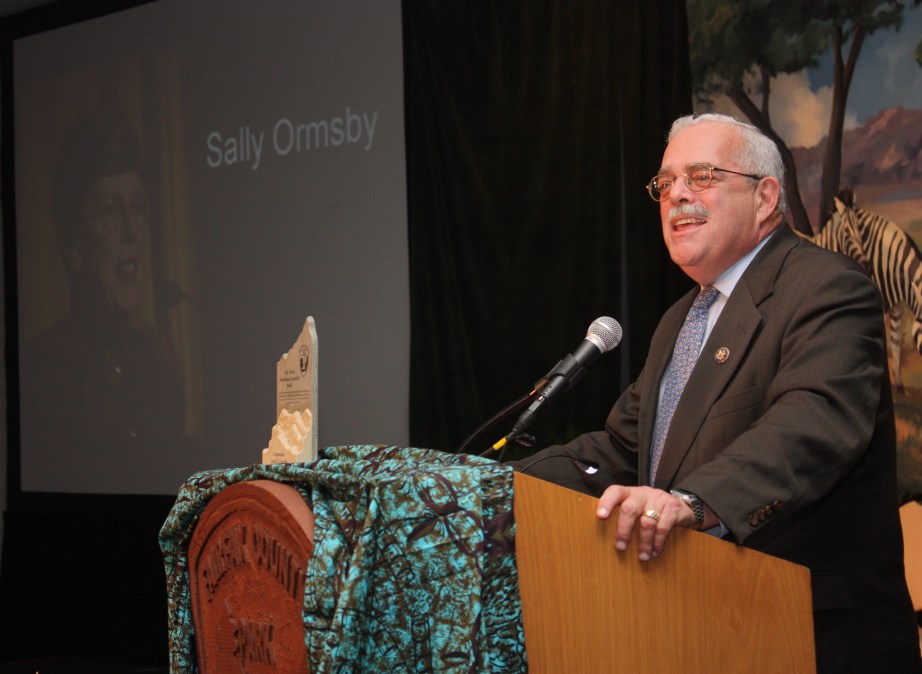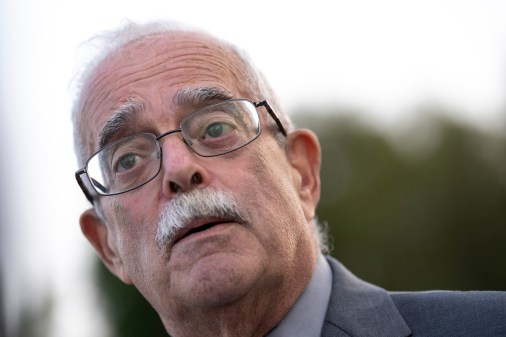Rep. Connolly blames TMF stagnancy on Congress’ lack of tech knowledge

The Tech Modernization Fund, just two years into its existence, is at risk of being zeroed out in fiscal 2020. One of the lawmakers who sponsored the creation of the fund is blaming the lack of knowledge around technology on Capitol Hill for the fund’s possible demise.
Rep. Gerry Connolly, D-Va., said Friday “we’re going to continue to fight” for TMF funding, but admitted that it’s a struggle to have meaningful conversations about tech within Congress because most lawmakers just don’t understand it or care about it.
“The problem is a lack of awareness and knowledge,” Connolly said at an event hosted by Brightspot. “You start talking about these issues and many of my colleagues… their eyes glaze over and they want to talk about anything else.”
The Tech Modernization Fund, created by the Modernizing Government Technology Act in December 2017, is a tool to give agencies small chunks of capital to jump-start important modernization projects. They then repay that money to the fund after a number of years.
In fiscal 2018 the TMF received $100 million, and in fiscal 2019 it got an additional $25 million — not a lot of money relative to the nearly $100 billion the federal government spends on IT each year, with upwards of 80 percent of that going to maintenance of legacy systems. And now, it appears the Senate doesn’t want to fund TMF in fiscal 2020 appropriations, which are still being negotiated in both houses.
Connolly said his colleagues aren’t willing to spend more money to ultimately create savings and IT efficiencies in the long-term because they don’t understand the business case.
“Believe it or not, to get a manager to agree to prioritize retiring those legacy systems and investing in a new system requires capital because the capital that looks like it’s there is actually maintaining the legacy systems,” he said. And if you’re pressed for budgetary priorities and staffing and mission and all kinds of other things, retiring a legacy system is a multi-year, multi-billion-dollar thing in your budget, and you’ve got to commit to it…So our goal was to incentivize them by creating this fund. And that was a hard sell for many of my colleagues because it’s counterintuitive. ‘What do you mean? We spend $96 billion a year. You want more? You think they need more to retire legacy systems?’ And so that’s an educational process.”
Tony Scott, a former federal CIO during the final years of the Obama administration, commiserated with Connolly’s experiences.
“We would go talk to people on the Hill, and a lot of them their eyes would just glaze over,” Scott said during a panel with Connolly. “Tens of millions of other things seemed to be more important… I think in order to make real progress on that, we’re going to have to get broader awareness and knowledge and then that will spur the right priorities in the agencies.”
He said it’s important to have more people in government who can clearly communicate the business case of modernization to leaders at agencies and appropriators.
“I think in the federal government, we need to exercise that muscle more of having people who have the skill sets and capabilities to do the business case analysis,” Scott said. “And that’s what part of MGT is, developing the business case for doing those things…”
Connolly took a partisan shot at the Trump administration, criticizing tech leaders in the White House‘s Office of American Innovation, Jared Kushner and Chris Liddell, for not pushing for more awareness of the federal government’s tech needs on Capitol Hill.
“I think we also need an administration that cares about these things…” Connolly said. “We’re going backward in a lot of things instead of making progress. We need an administration that is really committed to the mission. Congress takes its cues from that. If I can sense that they haven’t made this a priority, why should I? I’m busy. I’ve got a million other things I’m doing,” he said characterizing the mindset of his colleagues. “I think that’s a handicap. It’s not a topic of conversation in the halls of Congress.”






